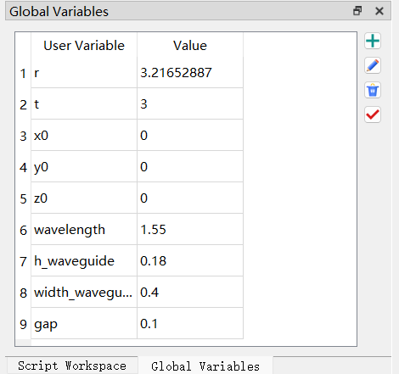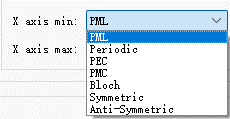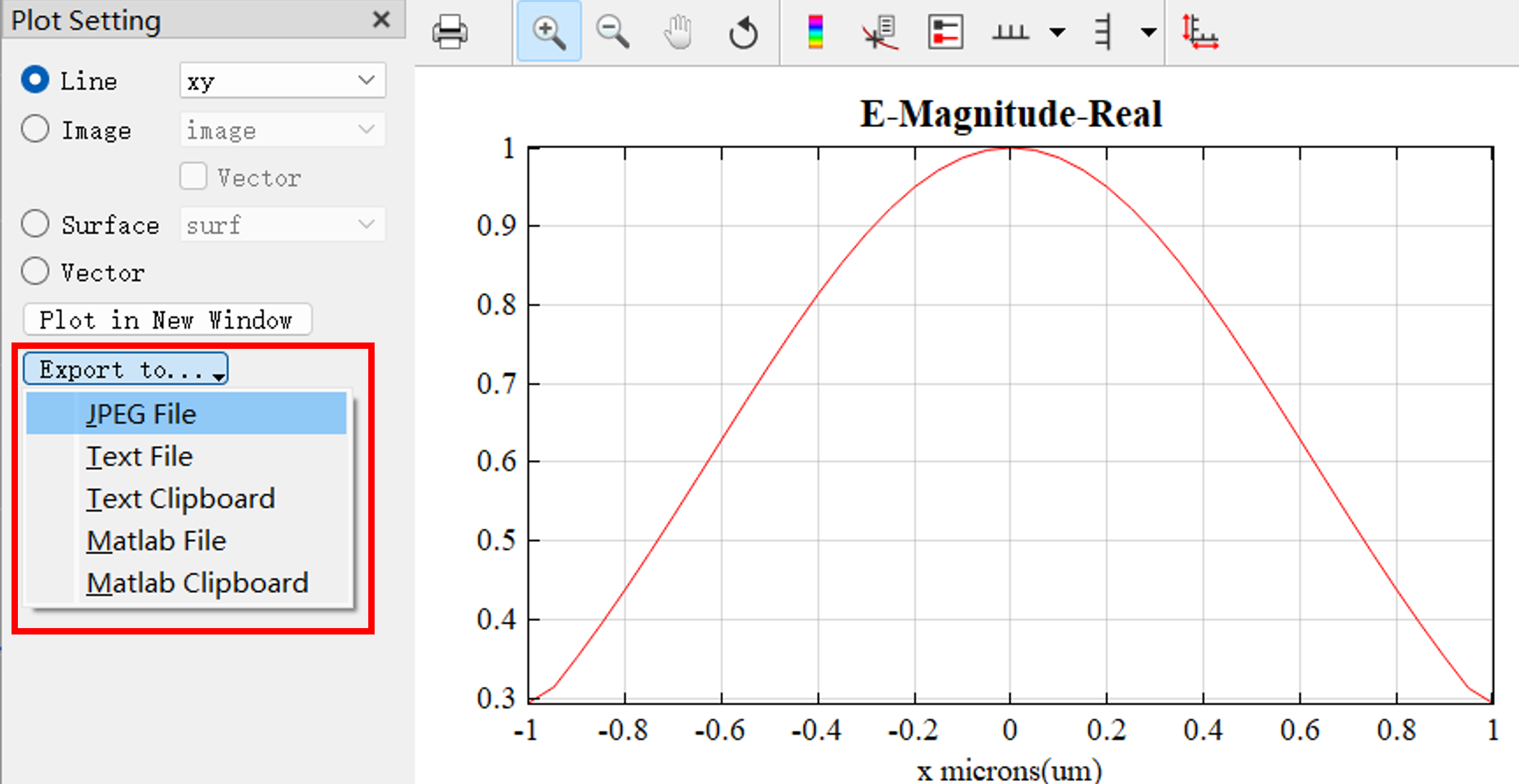Products
Solvers
Learning Center
Application Gallery
Knowledge Base
Support
License Agreement
Release Notes
Update and New
English
中文
Contact Number
+86-13776637985
Email
info@simworks.net
 Enterprise WeChat
Enterprise WeChat WeChat Service Account
WeChat Service Account
This section describes the import and export functions provided in the software.
You can import the following types of data on the interface:
The software supports custom definitions of Global variables. On the Global tab, you can set the corresponding variables and values for specific projects.

Click the , and enter the expression of the global variable. The result data of the expression will be returned on the software interface.

Then you can enter the data directly on this interface.

Select an item from the drop-down menu bar as an import.

It is used to indicate whether a certain function is enabled or disabled in the project. The item will be enabled by clicking the checkbox to place a checkmark inside the box, or disabled by clicking the checkbox again to remove the checkmark.

The option button can be used to activate or deactivate an option. You can select only one option at a time from a set of option buttons. If one option is selected, the previously selected option will be automatically deactivated.

For formulas and data imports, the input data will be subject to restrictions based on the corresponding parameter domain.
Files can be imported into the software in two ways: interface import and script import.
The software supports importing files in specified formats into a particular project. In the Home tab of the software's Ribbon, click Import to select the file type to be imported.

The details of file types in the figure can be found in the following table:
| Number | Name | Description |
|---|---|---|
| 1 | Gds | Gds is a binary file format developed by Cadence Design Systems,and is commonly used to store information such as the geometric shape and hierarchical structure of semiconductors. |
| 2 | Osg | Osg file is a 3D scene graph developed by the open 3D engine OpenSceneGraph(OSG), which can store various model information. |
| 3 | Ive | Ive file is a binary scene format defined by OSG, typically used to save 3D models. |
| 4 | 3dc | 3dc file is a file format for storing 3D media created by the 3DCrafter from Amabilis. |
| 5 | 3ds | 3ds is a 3D graphics file format developed by Autodesk in its early days, widely used in 3D modeling and animation. |
| 6 | Ac | Ac file is a type of 3D model file created by the AC3D. |
| 7 | Obj | The Obj format, originally developed by Wavefront, has become a widely used format among 3D models. |
| 8 | Geo | Geo file is a 3D model file created by Carbon Graphics. |
| 9 | Dae | Dae is a file format launched by Collada for storing and transferring 3D models between different software. |
| 10 | Shp | Shp file is an open format for spatial data developed by Environmental Systems Research Institute(ESRI). |
| 11 | Flt | OpenFlight(Flt) is originally a 3D scene description file developed by ESRI. |
| 12 | Stl | Stl is developed by 3D Systems and uses unstructured triangles to describe 3D objects. |
| 13 | Ply | Ply is a 3D data format developed by Stanford University for polygonal models. |
The software supports script import:
load_ascii("filename"): Import MaxCloud ascii data and load data in the .mdfascii format into the workspace;loaddatafile: Load data in the .mdf format into the workspace;loadmatlabmatfile: Import a dataset in the MATLAB's.mat format;loadproject: Import project files.For more information on script import, see Script.
Files in the software can be exported in two ways: interface export and script export.
The software supports exporting files in specified formats. In the Home tab of the software's Ribbon, click Export to select the file type to be exported.

Click the Export to... in the Data Visualizer window. You can export data to files of specified types.

The software also supports script export:
save_ascii: Save data as a.mdfascii file;savedatafile: Save data as a.mdf file;savematlabmatfile: Save data as a.mat file recognized by MATLAB;saveproject: Save project files.For more information on script export, see Script.
There are diverse data types available in the software:
For more information, see Data Types of scripts.
It should be particularly pointed out that the dataset is a data structure exclusive to the software. Please note that it is not a data type.
The dataset greatly simplifies the data management of the software. It not only enables creation, composition, modification, and import/export of simulation data, but also allows you to view data by using the Data Visualizer window.